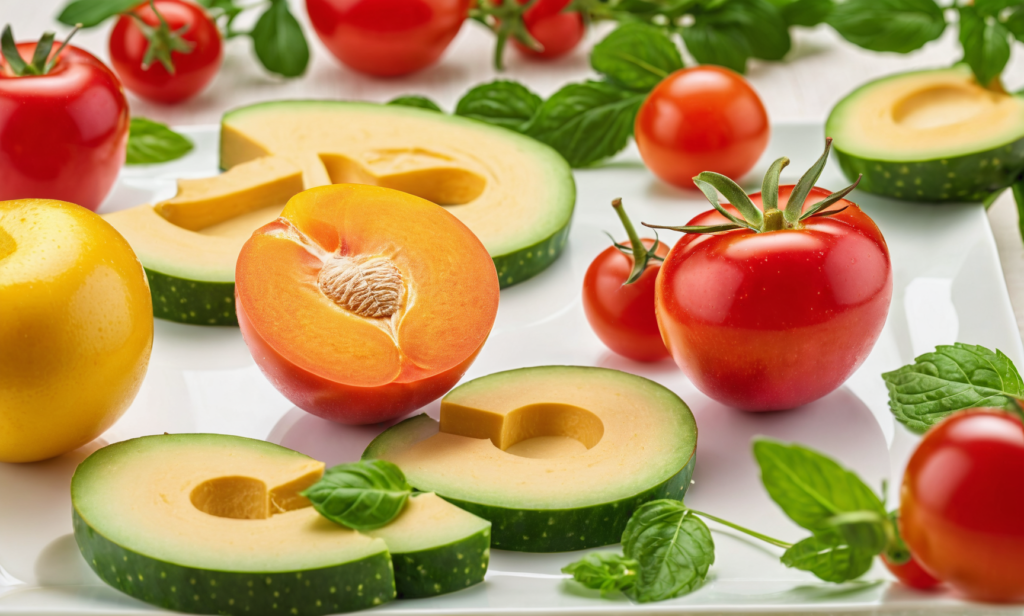Busting 7 Common Vegan Myths: The Truth Revealed
I’ve intertwined my practice with a journey through mindful nutrition. Encountering myriad diet philosophies, I’ve seen veganism persistently shrouded in myth and misconception. Let’s unfold the truths together, debunking seven prevalent vegan myths, revealing a world where compassion and health coalesce seamlessly.
Myth 1: Vegans Can’t Get Enough Protein
Protein, the building block of muscles, is often touted as the Achilles’ heel of vegan diets. Yet, this couldn’t be further from the truth. Plant-based powerhouses like lentils, quinoa, tofu, and tempeh are teeming with protein. Even leafy greens and nuts contribute to a well-rounded vegan protein profile. Combine different sources, and you’ll not only meet but possibly surpass your daily protein needs.
Myth 2: Vegan Food Is Boring and Blah
The misconception that vegan food lacks variety and flavor is as old as the belief that yoga is just stretching. In reality, vegan cuisine abounds in a kaleidoscope of spices, textures, and innovative dishes. From rich, creamy coconut curries to vibrant and zesty quinoa salads, a vegan diet is a playground for culinary adventure and creativity.
Myth 3: Vegans Struggle to Get Enough Iron
Anemia and veganism are often incautiously linked, with many people assuming plant-based diets fall short in iron. However, a cornucopia of beans, lentils, pumpkin seeds, and leafy greens rich in this vital mineral begs to differ. To enhance absorption, simply pair these with vitamin C-rich foods like bell peppers or citrus fruits – it’s synergy at its finest!
Myth 4: A Vegan Diet Is Expensive
Caviar tastes aside, a vegan diet needn’t strain your wallet. Staples like rice, beans, pasta, and seasonal vegetables are among the most economical choices on the shelves. While exotic superfoods and vegan substitutes can add up, they’re no more expensive than their gourmet, non-vegan counterparts. Budget-friendly and ethical eating can indeed coexist.
Myth 5: Veganism Is Inadequate for Athletes
From tennis titans to trail-blazing track stars, a surge of athletes are now thriving on plant-based regimens. The myth of meat as the exclusive fuel for peak performance has crumbled under the evidence. Vegans can obtain all the necessary nutrients – carbohydrates, fats, proteins, vitamins, and minerals – to build stamina, muscle, and endurance.
Myth 6: Veganism Guarantees Weight Loss
While many find a vegan diet conducive to shedding pounds, it’s not a one-size-fits-all solution for weight loss. Calories and nutrition still count, with plant-based junk food like fries or sugary snacks contributing to calorie surplus. Mindfulness and balance in food choices remain key, regardless of dietary labels.
Myth 7: Vegans Don’t Get Enough Calcium Without Dairy
Milk mustaches have been the hallmark of calcium intake, but the truth is, bone health isn’t exclusive to dairy consumers. Calcium-fortified plant milks, tofu, and leafy greens offer robust calcium sources. The body’s absorption and utilization of calcium, also affected by vitamin D and exercise, paint a holistic picture that transcends any single food group.
In unraveling these myths, I hope to illuminate the richness and vitality of a vegan lifestyle. As we voyage through culinary landscapes, we uncover not only an enduring truth about nourishment but also a deeper connection to our environment and its inhabitants. Embrace your wanderlust for flavors and knowledge, and let your culinary journey be as boundless and fulfilling as your travels.

